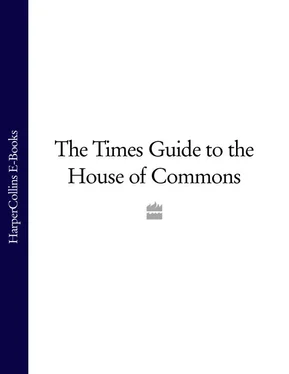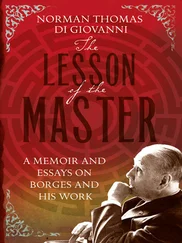As the results came in on Thursday night and Friday morning perhaps the biggest surprise was how well Labour had done. Topping 250 seats exceeded the expectations of most party strategists, the pollsters and the bookmakers. The better-than-expected showing followed a campaign in which Mr Brown was himself the reason massive numbers of voters gave to Labour candidates for not voting for their party. He was “cyanide on the doorstep”, in the words of one unkind Labour minister. After the election, many Labour figures pondered whether if any other leader had been at the top of the party Labour would now be in its fourth term in a row.
Among Labour people it was a weekend of “if onlys”. If only Mr Blair had taken on Mr Brown in a contest in 1994 after John Smith died and beaten him. Mr Blair would never then have had that sense of obligation to Mr Brown that in the end made him give way to him. If only Mr Blair had called Mr Brown’s bluff and demoted him from the Treasury in the second term. If only Mr Blair had not announced before the 2005 election that it would be his last as leader. If only in 2006 Mr Blair had changed his mind, seen off the Brownite plot against him, and stood again in 2010.
On that dramatic Monday after the election Mr Brown announced plans to quit, as he had told friends he would. He called the cameras to Downing Street and said that he would stand down within months. He first told Nick Clegg. In so doing he removed the biggest obstacle to Mr Clegg doing a deal with Labour, if his attempts to wring further concessions from the Conservatives bore no fruit. As it happened, it was a final throw of the dice for Mr Brown and Labour and it did not work. Mr Clegg went with the Conservatives, even though he tried to keep open the prospect of a deal with Labour to the last. Mr Brown’s Monday gambit was designed to give Labour its only chance of staying in power and it meant that when he finally resigned the next day he could go with dignity.
Exactly 1,048 days after he first kissed hands, Mr Brown was on his way back to the Palace to tender his resignation to the Queen, the eleventh prime minister to have done so. As he did so he could have been forgiven for wondering if his own and Labour’s fortunes would have been better served if he had contained his ambitions. With Sarah by his side he left the stage saying that he had learnt about the very best in human nature and “a fair amount too about its frailties, including my own”. The words spoke volumes. In those long years at the Treasury, getting Mr Brown to admit to mistakes, or even to human fallibility, was an impossible task. During his much shorter term as Prime Minister, Mr Brown seemed to learn much more about himself. He left the front line believing that Britain had become a better place during the Labour years. But no one is tougher on himself than Mr Brown. He will agree with the verdict that his years in No 10 did not live up to what had gone before. Philip Webster was Political Editor of The Times throughout the new Labour years
Names of the dead were read to a silent Commons
Deborah Haynes
Defence Editor
British deaths on the front line were greater during the last Parliament than in any other since the Korean War. The toll, 369 service personnel, coupled with public anger over a lack of helicopters and armoured vehicles for troops in Afghanistan and Iraq, helped to draw the military into the political debate in a way not seen for a generation.
It did not happen straight away. Britain was a country at war on two fronts for most of the five years, but servicemen and women returning home would find themselves bemused at how little attention their efforts received. There was an underlying sense of disconnect between the politicians in Whitehall and the soldiers, sailors and airmen fighting and dying on their behalf in Helmand province and across southern Iraq. The sight of Tony Blair and after him Gordon Brown sporting flak jackets, helmets, sand-coloured boots and wide smiles on fleeting visits to fortified bases in both warzones did little to change this impression.
The political-military divide was further hindered by the rotation of four different defence secretaries in five years. Des Browne, who held the post from May 2006 until October 2008, was simultaneously made Secretary of State for Scotland when Mr Brown became Prime Minister, an appointment that many in the military saw as an insult, confirming their suspicion that the Government had failed to attach sufficient importance to its Armed Forces.
Mounting questions about the legality of the Iraq campaign, however, coupled with revelations in the media about the state of medical care for wounded troops, inadequate equipment on the front line and a litany of other shortfalls, began to create awkward political questions for ministers to answer. Driving home this sense of unhappiness, General Sir Richard Dannatt, then the head of the Army, broke with a tradition that frowns upon serving officers criticising the government and gave warning in September 2007 that the presence of British Forces in Iraq was worsening local militia attacks. He also spoke out on other emotive topics, such as inadequate accommodation for soldiers, unfair pay and the need for more boots on the ground in Afghanistan. Retired military chiefs added their voices to the chorus of complaints, with high-profile figures such as General Lord Guthrie of Craigiebank, a former chief of the defence staff, becoming a regular critic of Mr Brown, who was accused of cutting the defence budget during a time of war.
The mood of blame and betrayal differed sharply to the plaudits that Margaret Thatcher earned when she took Britain to war in 1982 to recover the Falkland Islands from Argentina. That successful campaign, despite the loss of 255 British lives, helped her to secure a landslide victory in a general election the following year. In contrast, the invasion of Iraq and its bloody aftermath, while defended by military commanders and politicians at the time, cast a shadow over the 2005-10 Parliament that did not disappear when Tony Blair stepped down. Instead, the Government’s conduct in siding with the United States over Iraq began to be scrutinised in the Chilcot inquiry, set up to learn lessons from the Iraq campaign.
The previous Parliament also oversaw the deployment of British Forces into southern Afghanistan on a mission that was supposed to be about reconstruction but evolved into the bloodiest combat operation for the British military in decades. The punishing toll of casualties in Helmand over four summers belatedly captured people’s attention back in Britain. Every week at Prime Minister’s Questions the names of the dead were read out to a silent Commons, while television screens across the country tuned in to watch crowds line the street of a town called Wootton Bassett as convoys carrying the bodies of repatriated service members were escorted from a nearby military airbase. The reality of soldiers with missing limbs, horrific scars and the less obvious but equally debilitating problem of mental disorders also awoke a sense that Britain was at war and more needed to be done to help the Armed Forces. The Government came under increased scrutiny.
Public outrage at the continued use of Snatch Land Rovers, dubbed “mobile coffins” by the soldiers who used them because of their inability to protect against roadside bombs, was one of the emotive issues that changed the relationship between the military and the politicians. So, too, did anger at an inadequate pool of Chinook helicopters, which was forcing British troops to move by road, making them more vulnerable to improvised explosive devices, the biggest killer of British Forces in Afghanistan and Iraq.
The criticism added to a growing perception that the Government had tried to fight “Blair’s wars” on a peacetime budget. Even coroners were calling into question how frontline soldiers were being kitted and trained. To their credit, ministers responded to urgent requests from commanders on the ground, with the Treasury signing off on new, improved armoured vehicles and helicopters in record time. The damage, however, had already been done and repeated assurances that no request had been turned down rang hollow amid the belief that the military had never been properly funded in the first place.
Читать дальше












